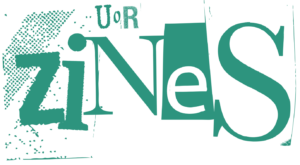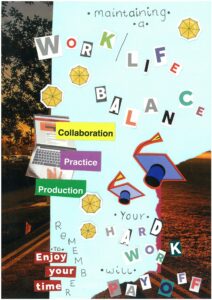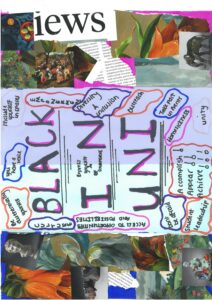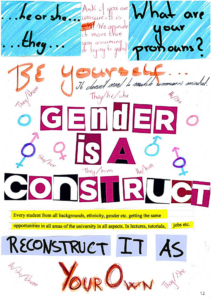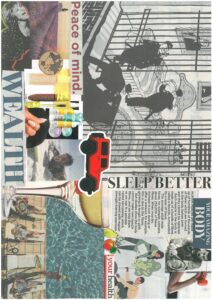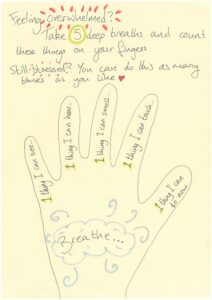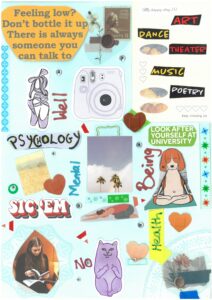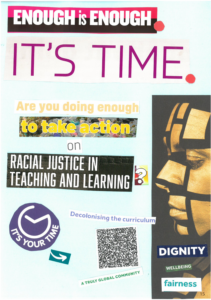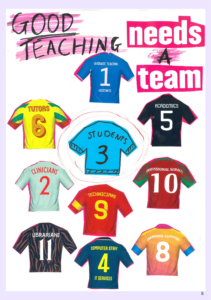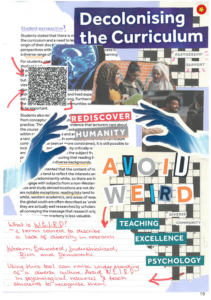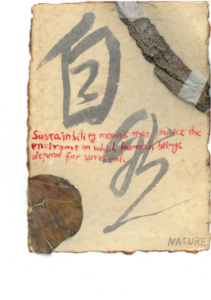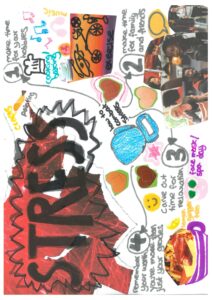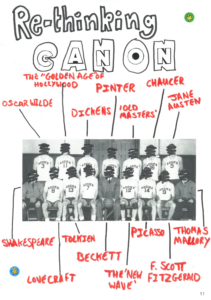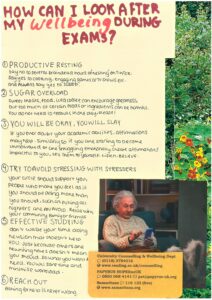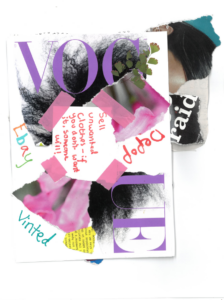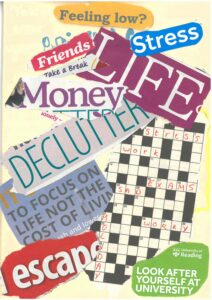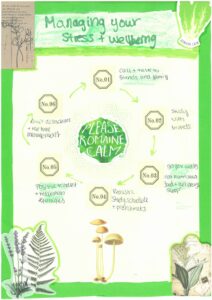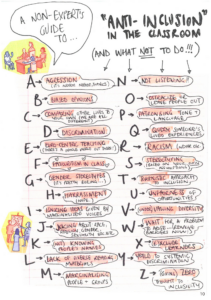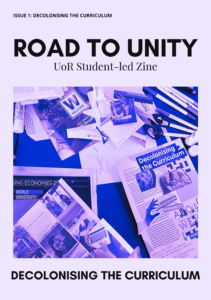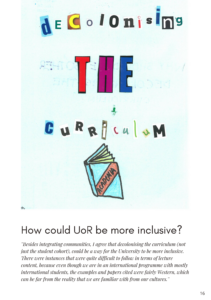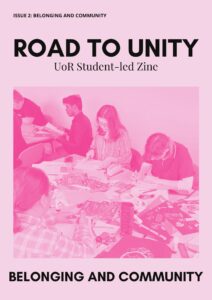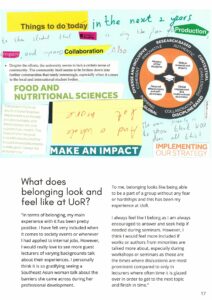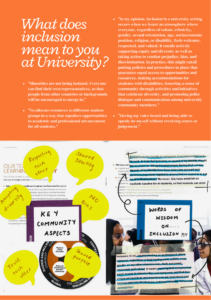Zines for Higher Education
Zines are small-circulation, self-published magazines or artbooks which can be used as a medium to engage, capture and learn from authentic voices. They can be a fun way to engage students, colleagues and workshop participants to explore a range of themes, challenges or experiences in a visual medium.
What is a Zine?
Zines can be created out of physical materials (e.g., paper and markers), composed digitally (e.g., images manipulated in photo editing software), or created from a combination of these methods. They can be reproduced, typically via direct photocopying or scanning into graphical editing software to create a digital file for further manipulation, printing, and/or hosting online.
Using Zine making in your practice
Zine-making can provide students and with a space for creative expression and deep reflection on matters central to student experience, allowing exploration and productions of both visual and written materials.
This creative approach is inclusive and accessible e.g. crossing cultural boundaries, limiting language barriers for international students, and supporting neurodivergent students to engage through alternative modes of expression.
Ways to use zine-making in your practice (examples)
- Exploring student voices for teaching evaluation
- Formative and summative assessment
- Community building activities (e.g. Welcome week)
- Ice-breaker or warm up activities
- Reflecting on taught content (e.g. creating a revision tool)
- Wellbeing exercises
- Embedding sustainable practice in your teaching (e.g. recycling course materials)
Resources and guidance for Zine making
Creating a digital Zine
The following tools can be used for creating a digital zine (or editing and hosting a digitised version of a traditional paper-based zine). Keep in mind that while many of these tools have a free option, they will typically have limitations compared to the paid versions of the software.
- Canva Free – Free design editor (similar to Adobe Photoshop) that runs within your browser.
- This YouTube video from Northeastern Illinois University provides a quick guide for getting started making zines using Canva.
- Electric Zine Maker – offers a whimsical and accessible way to design and produce tangible, printed zines.
- Flipsnack Zine Maker – Creates flipbooks. Start designing at no cost but no option to download a PDF.
- Issuu – Turn your PDF into a dynamic, interactive flipbook. Especially useful if you’ve created a physical zine and have scanned it to create a PDF.
- Heyzine – An alternative to Issuu. Turns PDFs into flipbooks. Has a free tier with limited functionality.
- You don’t need specialised software to create zines. For example, Microsoft Word can be configured to create and print a booklet. See the instructions on the Microsoft website.
What about images?
There are plenty of online image repositories that host images which can be downloaded and repurposed under either Creative Commons or Public Domain licences, depending on the material. Some repositories to get you started:
Copyright considerations
When making a zine, it's essential to understand copyright and its implications. In the UK, copyright automatically protects your original work—there’s no need to register or pay a fee. It prevents others from using, copying, or distributing your work without permission. You can indicate copyright by adding the ‘©’ symbol, your name, and the year of creation, although this is optional.
If your zine includes or adapts someone else’s content, you must ensure you have the right to use it. Some exceptions allow limited use of copyrighted material for educational purposes, such as non-commercial research, teaching, or private study. These uses must be considered “fair dealing” and typically require proper attribution.
Please see the following links for further guidance on copyright:
- University of Reading LibGuide on copyright
- Information Management and Policy Services’ website on copyright
- UK Government’s official page on exceptions to copyright
Creative Commons
Creative Commons provides a range of licensing options for creative and scholarly work. As a non-profit organisation, its mission is to support sharing and access while ensuring creators receive proper credit. More information can be found at their website: creativecommons.org
Further resources
- A Guide to Zines & Higher Education by Sarah Mannix – a digital zine that includes advice on making a zine and why they’re useful in higher education
- Wikipedia page on zine making
- Zines at Santa Clara University Library – a helpful guide that includes video tutorials
- Douglas College Library Zine LibGuide – like the Santa Clara University Library guide, it includes helpful instructional videos and templates.
- The Creative Independent’s guide to making zines – includes advise on ideating and promoting your zine.
- Vice’s guide to making a zine
- London College of Communication’s Zine Collection – the LCC at the University of the Arts London is a special collection that is home to a large zine collection. The website contains full scans of zines and zine covers.
- Zines Forever – a site with guides and inspiration for creating zines
Reading list
For scholarship about zines and zine making, including on their history and uses in teaching and learning, see our Talis Aspire reading list: Zines and zine making for higher education.
Zine case studies
- Using zines to decolonise the curriculum: A case study in student partnership. This case study explores the radical potential of student partnership and zines in the decolonising space.
- Zine your way to Zen. This case study shares the impact of zine-making as a space to support colleagues mental health and wellbeing, focused on a workshop run as part of the Staff Wellbeing Week at UoR.
UoR published Zines
Road to Unity: UoR Student-led Zine
This series of zines explores the radical potential of student partnerships and zines in the inclusive teaching and learning space. All works were created by students on the Student Panel and Inclusion Consultants scheme in partnership with colleagues at the University of Reading.
Road to Unity: Issue 1. Decolonising the Curriculum
Road to Unity: Issue 2. Belonging and Community
Borrow the UoR Zine Workshop Kit
CQSD have created a Zine-making kit to support students and colleagues to run their own zine-making activities. The kit is comprised of tools, materials and examples of zines.
The Zine-making toolkit includes:
- scissors
- glue sticks
- recycled paper
- pens, markers, pencils etc
- paints
- stickers and scrapbooking materials
- recycled magazines, newspapers, cards etc
- calligraphy set
Borrow the uoR Zine Kit
Click here to request the CQSD Zine-making kit to run your own zine-making activities
Contact details
If you have any questions about Zines and Zine-making, please contact the team: v.grace-bland@reading.ac.uk or m.kilmister@reading.ac.uk
